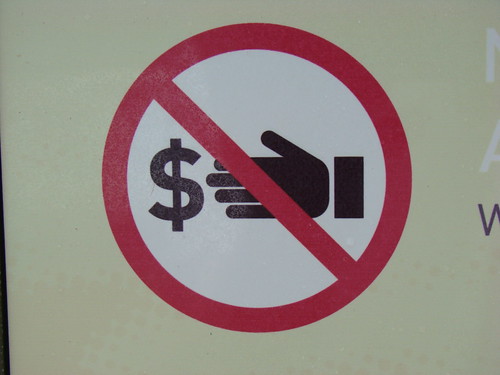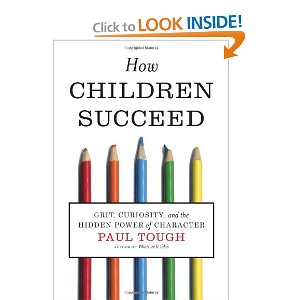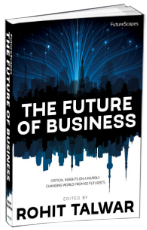[caption id="" align="alignright" width="294"]

Dancing to the beat of their own drums?[/caption]
A whole generation of single children have come of age, revealing some interesting sociopsychological observations. Although China's one-child policy implemented in 1979 has helped curb population growth, their aspiring leaders and innovators are showing some undesirable tendencies that are not as prominent among children with siblings. Only a quarter of Chinese families had single children in 1975 compared with 91 % in 1983. So by comparing children born right before and right after the one-child policy took effect, researchers from Australia National University were able to keep other cohort-dependent variables fairly constant. What they found is that the single children tend to have lower social skills and weaker economic attainment than their slightly older peers with siblings.
The now grown up participants were tested playing various strategic games:
dictator,
trust,
risk and
competition and with follow up surveys. Those who were born after the policies took effect indicated by the results that they were less cooperative, less trusting, more risk aversive and less competitive than the ones who were born before the policy. The researchers were even able to document that the sibling-deprived participants more frequently
demonstrated signs of neuroticism. Social interaction with peers and extended family could not mitigate the sibling effect. The
full study was published in
Science this last January.
 I just read an article that called our youngest generation the "re-generation" (sorry, can't find the url), alluding to their familiarity with the reduce, reuse, recycle slogan and their attentiveness to environmental causes. I haven't found any hard statistics that actually support the idea that the Homelanders will be more environmentally conscious, but OK, I'll go with the idea that environmentalism is since environmentalism is gradually entering into our psyches over time a sense of urgency and importance might be greater among the young. One thing I learned from judging at the Texas Future Problem Solvers competition this weekend is that the fervent climate change deniers and "drill, baby, drill" knuckleheads are not making inroads into the mindset of the young. From my own experience it does indeed seem as if 'Reduce, Reuse and Recycle' resonate on a much deeper level and are more actionable and instinctive with our the youngest cohorts.
I just read an article that called our youngest generation the "re-generation" (sorry, can't find the url), alluding to their familiarity with the reduce, reuse, recycle slogan and their attentiveness to environmental causes. I haven't found any hard statistics that actually support the idea that the Homelanders will be more environmentally conscious, but OK, I'll go with the idea that environmentalism is since environmentalism is gradually entering into our psyches over time a sense of urgency and importance might be greater among the young. One thing I learned from judging at the Texas Future Problem Solvers competition this weekend is that the fervent climate change deniers and "drill, baby, drill" knuckleheads are not making inroads into the mindset of the young. From my own experience it does indeed seem as if 'Reduce, Reuse and Recycle' resonate on a much deeper level and are more actionable and instinctive with our the youngest cohorts.

 "Hey guys. I just wanted to ask - just a random question. Uhmm. Am I - like - ugly or pretty?"
- You don't have to dig deep into online archives to find a whole pageantry of kids as young as 10 years old unloading their most personal angst for complete strangers to comment on. And the more insecure they appear, the more likely they seem to attract trolls whose dubious netiquette allows them to filter through comments of this type: "DONT WANT TO SOUND MEAN BUT URE A F***ING DOG." (censoring added). In other words, the ones who most desperately need reassurance from their faceless peers are the ones who are the most likely get bulldozed by the 'Haters'. And rarely do any respondents care to unmask the more existential questions that simmer immediately underneath the Snow White narrative: “Am I likeable? Am I loveable?”
"Hey guys. I just wanted to ask - just a random question. Uhmm. Am I - like - ugly or pretty?"
- You don't have to dig deep into online archives to find a whole pageantry of kids as young as 10 years old unloading their most personal angst for complete strangers to comment on. And the more insecure they appear, the more likely they seem to attract trolls whose dubious netiquette allows them to filter through comments of this type: "DONT WANT TO SOUND MEAN BUT URE A F***ING DOG." (censoring added). In other words, the ones who most desperately need reassurance from their faceless peers are the ones who are the most likely get bulldozed by the 'Haters'. And rarely do any respondents care to unmask the more existential questions that simmer immediately underneath the Snow White narrative: “Am I likeable? Am I loveable?” 




